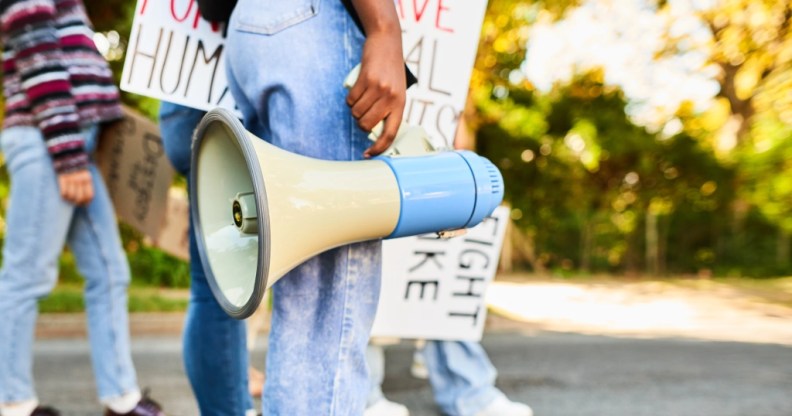Two in five people in the UK think equality has gone so far, men are now being discriminated against

2 in 5 British people think that men are being discriminated against because of efforts to champion the equal rights of women. (Getty)
2 in 5 British people think that men are being discriminated against because of efforts to champion the equal rights of women. (Getty)
New research released by King’s College London and Ipsos has found nearly 40 per cent of Britons believe that supporting women somehow hurts men.
According to the findings, 2 in 5 British people think that men are being discriminated against because of efforts to champion the equal rights of women.
The study, carried out to mark International Women’s Day on 8 March, found that 38 per cent of respondents think enough positive progress has been made to improve women’s rights – despite women all over the world still not having the same rights and opportunities as men.
Even more concerningly, 2 in 5 people believe efforts to improve equality are actually discriminating against men.
Polling 22,000 adults in 32 different countries, the new research found that since 2019, more people think enough progress has been made to ensure equality between men and women – rising to 38 per cent from 29 per cent.
Chair of the Global Institute for Women’s Leadership at King’s College London, Julia Gillard, said that the rise of misogynistic influencers may be part of the problem, but more research needs to be done.
“Despite the progress we’ve made in recent decades, high-profile examples of misogyny are still rife, particularly online, and there are worrying signs from this research that such views are not only gaining ground among the public, but also deterring people from advocating for women’s rights,” she said.
Gillard, who served as Australia’s prime minister between 2010 and 2013, highlighted findings that younger generations in Britain were the most likely to hold some regressive views, including that a man who “stays home” to do childcare is “less of a man”.
She warned that this is a “disturbing reminder there is still much more to do” and that “future progress is not guaranteed”.
More people than ever are scared to champion equal rights of women
The research also found that UK respondents are increasingly worried about championing the rights of women. Due to fears of reprisals, 29 per cent said they were afraid to publicly support equal rights for women, a figure that has risen from 14 per cent back in 2017.
Around the world, a global average of 37 per cent expressed fear about openly supporting women’s equality.
“We can’t be sure if these trends are the direct result of certain individuals gaining greater attention for their extreme and misogynistic views, but with reports of teachers and parents fearing that young people – and particularly young boys – are buying into a sexist ideology because of what they hear and read online, it’s a question that urgently requires more research,” Gillard added.
“And it’s something that tallies with our findings, with the youngest surveyed sometimes the most likely to hold sexist views.
“Also worthy of more investigation is whether we’re seeing a broader backlash to gender equality post-MeToo, which could be contributing to these shifts in attitudes.

